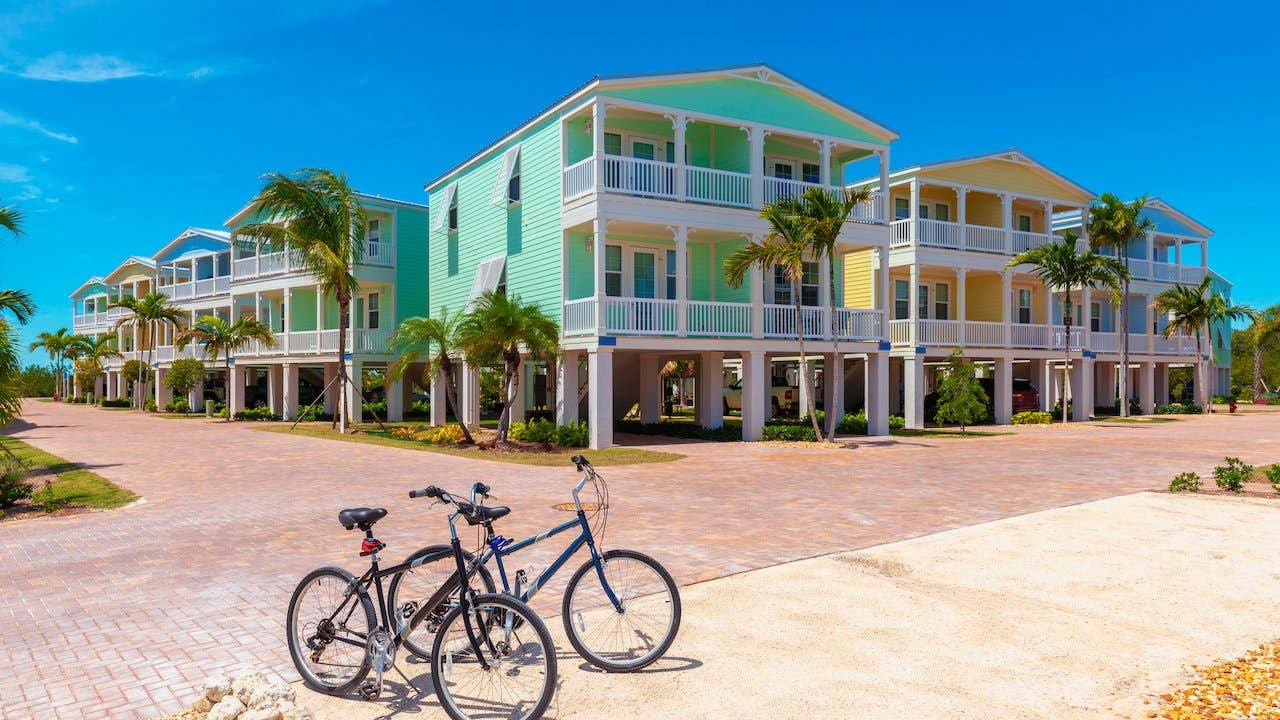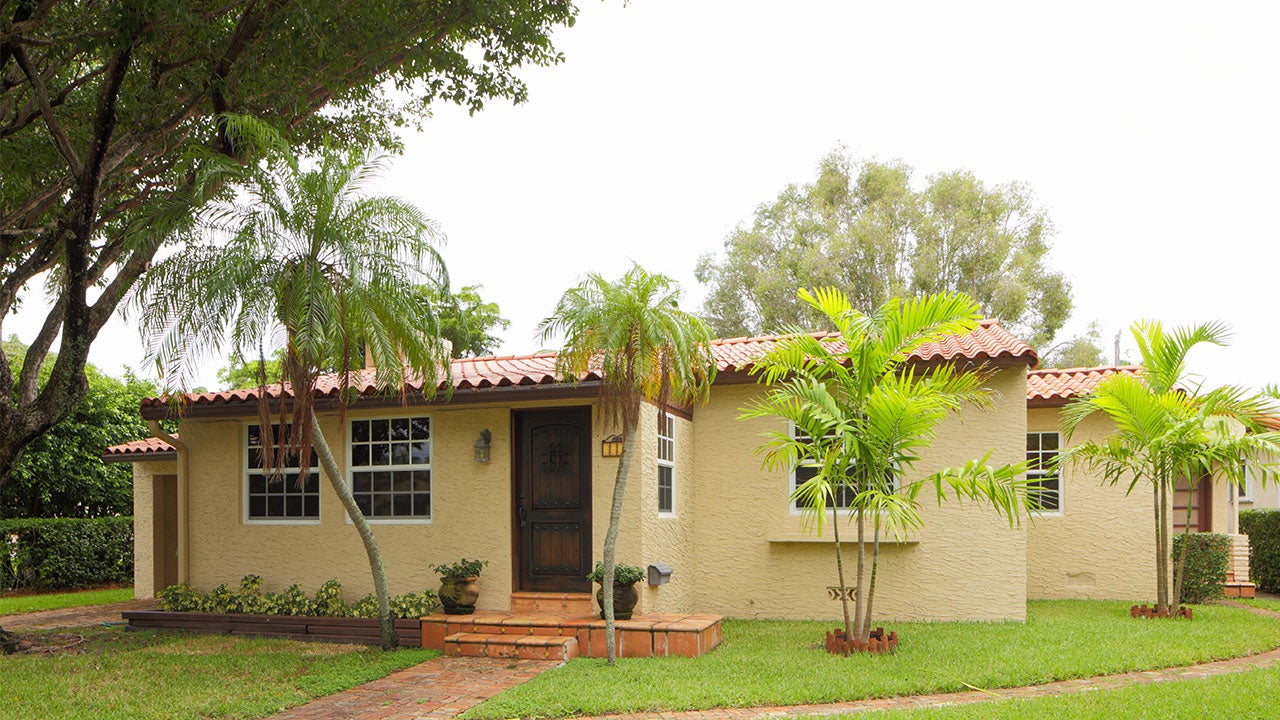Sell your home fast in Florida

Selling your home in Florida used to be synonymous with speed. In the spring of 2022, homes were flying off the market in less than 10 days. Lately, though, the Fed’s rate hikes have created some storm clouds for anyone trying to sell quickly in the Sunshine State. As the Florida housing market changes, read on for everything you need to know about accelerating your sale timeline and maximizing your profit.
How fast can you sell your home in Florida?
At the beginning of 2023 in Florida, the median time a home sat on the market before going into contract was 40 days. That’s still fairly quick, but it’s a whopping 185 percent increase from a year earlier, according to figures from Florida Realtors. The wait time might look different depending on where in the state your home is located. For Orlando sellers, for example, homes are spending a much longer average of 62 days on the market.
If you want better odds at selling your home faster, it’s probably smart to list in the spring or early summer. Historically, this time of the year is when buying activity picks up and competition gets fierce. However, there is a caveat to consider: Historical trends may not apply this year as worries about a recession and higher mortgage rates continue to cool the housing market.
With so much uncertainty, it’s wise to work with an experienced local real estate agent. You don’t have to hire one — it’s certainly possible to sell your home on your own. However, if you do, be prepared to do a lot of work and potentially get a lot less money in return. Data from the National Association of Realtors shows that real estate agents tend to help clients get $105,000 more than FSBO, or “for sale by owner,” listings.
Need to sell even faster?
Across the country, the seller’s edge is quickly disappearing as the housing market begins to balance out. If you’re worried about waiting too long and want to get a deal done ASAP, here are a few options to consider:
- Find an iBuyer: iBuying isn’t as prevalent these days as it once was, but the two biggest players, Opendoor and Offerpad, are both still actively buying homes in many Florida areas. Reach out to one for a quick cash offer.
- Sell for cash: More than 31 percent of Florida real estate deals were all-cash in January 2023. Cash deals means there’s no mortgage financing required, which eliminates a lot of the waiting game. There are plenty of companies that buy houses for cash in Florida. Just be aware that, in exchange for speed and convenience, you’ll likely get less money than you would in a traditional sale.
- Work with an agent: Hire an agent with a plan for an aggressive pricing strategy that will make buyers do a double take. For example in Sarasota — which recently topped Bankrate’s list of the best place to live in Florida — the median home price is $435,000. A nice listing there for, say, $399,000, is sure to draw buyers’ attention.
Selling your home in Florida
If you decide to take a traditional route to listing your home, consider these questions before you start looking for buyers.
What should you fix before selling your home in Florida?
If you have water damage from Hurricane Ian or some other noticeable issue, you’ll probably want to address it before letting prospective buyers take a look. Obvious problems can turn them away or lead to lowball offers. Additionally, it couldn’t hurt to get a pre-listing inspection that will uncover any other issues. You don’t have to fix every little thing though — your agent can help you decide what’s worth concentrating on.
Is it worth making upgrades to your home?
Probably not. While you might be able to increase the home’s value with major renovations, you will likely struggle to recoup the entire cost of the projects. Instead, stick with simple enhancements that will look especially appealing in pictures online, like a fresh coat of paint or a new flower bed.
Should you pay to stage your home?
Part of selling a house is helping buyers envision themselves there. And if it looks like someone else’s home — with your family pictures and your clutter still visible everywhere — house-hunters might not fall in love. Home staging is one option that can create a more welcoming feel. It can cost you as little as a few hundred bucks and offers a solid return on investment. If you’ve already moved out and the home is empty, though, renting furniture will increase the cost quite a bit.
How should you price your listing?
Don’t let the headlines you read in 2022 fool you into getting greedy. Median home prices here have been for the most part decreasing here since July 2022, per Florida Realtors. As buyers stare at higher mortgage rates, they simply can’t afford to borrow as much money.
When you list your Florida home, work with your real estate agent to review comps in the area and figure out how much your house is really worth. A competitive list price will bring in the most prospective buyers. Aiming too high, and then having to lower your price later, sheds a negative light and makes home shoppers wonder whether something is wrong with the home. Data shows that Florida homes typically sell for around 95 percent of their list price.
What do you need to disclose to a buyer?
Home sellers in Florida are required to inform buyers of defects that might impact the value of the property but are not readily observable. (Has the roof ever leaked? Any past storm damage?) Technically, you don’t have to share these details in written format; you can tell buyers verbally. However, the Northeast Florida Association of Realtors provides a seller’s property disclosure form that you can complete to verify you handled your duties as a seller.
Additional disclosures may include a flood insurance notice, a disclosure about sinkhole-related problems and a property tax disclosure that informs prospective buyers about their property tax bill. Plus, if your home is near the water, you will likely need to complete a coastal properties disclosure statement. This lets buyers know about the potential for shoreline erosion. And if you live in a community or building that’s run by a homeowners association, expect to hand over a complete look at the board’s past minutes and bylaws.
Florida home closings
Cost of selling a home in Florida
You may be dreaming about how much you’ll make from the sale, but don’t forget to consider closing costs, or how much you’ll need to spend to make it a done deal. Here’s a look at the costs of selling a house in Florida.
- Realtor fees: The payment to the real estate agents handling the transaction will be the biggest chunk of money associated with selling your home, in Florida and everywhere. The most common commission is around 6 percent of the sale price. On a $400,000 sale, that comes out to $24,000.
- Title insurance: In most places across Florida, the seller pays for title insurance. This fee is also based on the value of the property, and it is a tiered pricing structure. If your home sold for $400,000 and the buyer made a down payment of $80,000, title insurance for the owner’s policy would be $2,075.
- Documentary stamp taxes: Commonly referred to as real estate transfer taxes in other places, this fee is known as the documentary stamp tax in Florida. It’s how much you’ll pay to transfer ownership of the property. In most places in the state it’s 70 cents per every $100 of value, but it is slightly lower on single-family homes in Miami-Dade county.
- Seller concessions: Seller concessions, which involve you covering a portion of the buyer’s closing costs, are becoming increasingly common as buyers gain more leverage. According to Redfin data, nearly 50 percent of deals in Orlando included concessions in the final quarter of 2022; Tampa and Miami were not far behind with 37.3 percent and 34.8 percent, respectively.
Next steps
What matters more to you for your Florida home sale: time or money? If you can afford to be patient, hire a local real estate agent and work together to find the right buyer. If you can’t play the waiting game, consider an iBuyer or a cash-homebuying company. Keep in mind that if you’re trying to buy a home while selling one at the same time, you’ll need to give extra consideration to avoid paying two mortgages at once.
FAQs
-
While it’s certainly not as great as it was this time last year, it’s still a pretty good time to be a seller in Florida. The median sale price here is currently $389,990, according to Florida Realtors, which is above the national median. Plus, there is a decent chance you can find a buyer who won’t need to secure financing: More than 31 percent of home sales in Florida are all-cash deals.
-
The median time to contract in Florida as of early 2023 is a relatively quick 40 days. If you’re really in a rush, look into iBuying options to get an offer in less than 24 hours. Many cash-homebuying companies operate in Florida as well and can also provide quick closings.
-
You’ll need two forms of identification, along with proof that the house is indeed yours to sell. If you’re still paying your mortgage on the property, contact your lender for complete loan payoff information, too. And work with your real estate agent to make sure you have completed every necessary disclosure to ensure you’re checking off all the legal boxes.
Why we ask for feedback Your feedback helps us improve our content and services. It takes less than a minute to complete.
Your responses are anonymous and will only be used for improving our website.






